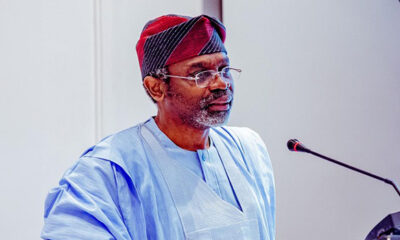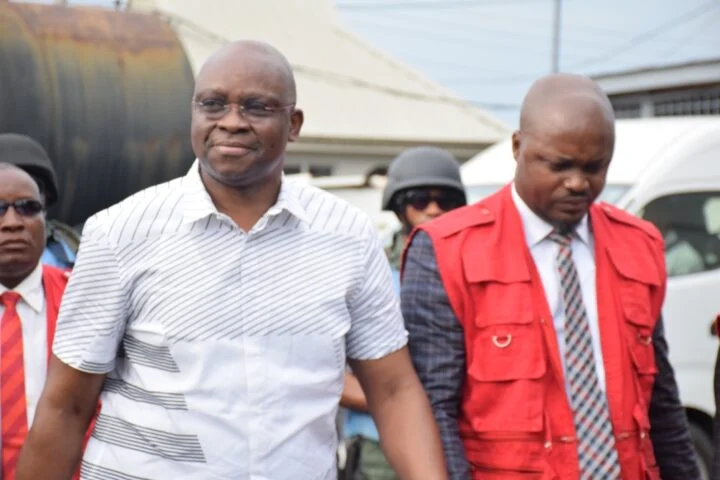The Federal Government has explained why it asked all states administering the COVID-19 vaccine to stop the exercise the moment they used half of the doses allocated to them.
Minister of State for Health, Sen. Olorunnimbe Mamora, gave the explanation at Tuesday’s media briefing of the Presidential Task Force on COVID-19, in Abuja.
Mamora explained that the directive became necessary since the country was not sure when next the second batch of the AstraZeneca vaccine would arrive in the country.
He said that it was also to enable those who had received their first jab to be able to complete their vaccination.
According to him, it is true, the directive to states to vaccinate half of the doses deployed.
“We believe that in a situation where we still cannot specifically determine when the next batch of AstraZeneca vaccine will arrive, then I think wisdom dictates that it’s better for us to vaccinate people fully.
“And so, we can say that we have a pool of citizens that have been fully vaccinated since this vaccination comes in two doses.
“So that’s what gave rise to that directive, rather than just going ahead with just a single dose when the full dose should be two doses of the same.
“So we felt that it was proper for us in the circumstance to ensure that those who have been vaccinated have been fully vaccinated,” he said.
Meanwhile, the Director-General of the Nigeria Center for Disease Control, Dr Chikwe Ihekweazu, assured that the agency was investigating the reported blood clotting in some individuals that had taken the first jab of the AstraZeneca vaccine.
Ihekweazu said: “There have been ongoing investigations that we have all been following on the suspected link that the AstraZeneca vaccines to the certain rear experience of blood clotting in individuals in Europe.
“Those investigations are still ongoing. Not all European countries are adopting vaccines for their populations.
“In Nigeria, with every vaccine, we have a parallel system to measure and monitor any side effects.
“That is ongoing and is being managed by the National Agency for Food Drugs Administration and Control in collaboration with National Primary Health Care Development Agency.
“We will continue to monitor patients in Nigeria. You know, every demographic is different, the demographic in taking vaccines in every country is different, the interaction between different drugs people are taking.
“So there are many circumstances that need to be fully evaluated, we will look at the data ourselves here in Nigeria and I will take action as needed.
“So I think, for now, we can be sure that we have an effective vaccination programme going on. And we’re very responsive to the concerns of Nigerians, I will respond to them as appropriate.”
Also, the NPHCDA Chief Executive Officer, Dr. Faisal Shuaib, clarified that the AstraZeneca vaccines and Johnson and Johnson vaccine could not be taken by the same individual.
Shuaib was responding to a question on if the Johnson and Johnson vaccine can be taken in a case where the second dose of AstraZeneca vaccine was not available.
He said: “I mean, that is not right. You cannot take the AstraZeneca on your left and Johnson and Johnson on the right. So it has to be both doses of AstraZeneca and a single shot of the Johnson and Johnson.
On the reported side effects of the AstraZeneca, he said, “I think we have said on multiple occasions here, that there are side effects of these vaccines, side effects of vaccines are not unique to the COVID-19 vaccine.
“So one thing that we continue to tell vaccinators is that even before people take the vaccines, they should be educated on the potential side effects.”
NAN

 BIG STORY2 days ago
BIG STORY2 days ago
 BIG STORY1 day ago
BIG STORY1 day ago
 BIG STORY2 days ago
BIG STORY2 days ago
 BIG STORY4 days ago
BIG STORY4 days ago
 BIG STORY2 days ago
BIG STORY2 days ago
 BIG STORY1 day ago
BIG STORY1 day ago
 BIG STORY1 day ago
BIG STORY1 day ago
 BIG STORY4 days ago
BIG STORY4 days ago
























